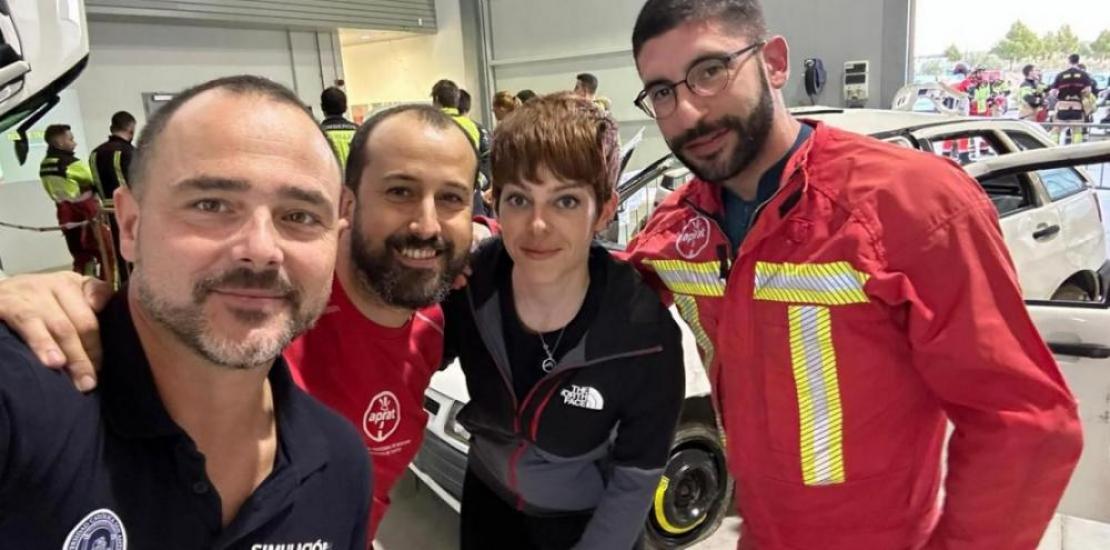A UCAM researcher is awarded the Juan Armengol grant
Ninety per cent of spinal cord injuries are due to trauma, with road traffic accidents being the most common cause, followed by falls. These injuries lead to the death of 1.19 million people each year and between 20 and 50 million people suffer non-fatal traumas, many of which result in disability. The research project conceived through the Juan Armengol Grant of the Fundación Española de Medicina de Urgencias y Emergencias (FEMUE, Spanish Foundation of Emergency Medicine) and led by UCAM researcher Ana Nicolás, seeks to reduce these figures by developing the best method of extracting crashed vehicles in emergency situations, with the least invasiveness and in the shortest possible time.
Once the best extraction method is determined, different training courses will be planned for firefighters and emergency personnel, to enable them to apply these techniques effectively and thus improve the results in critical situations.
Over the next two years, the UCAM research team, including Ana Nicolás, Manuel Pardo, Sergio Nieto, Francisca Expósito and Carmen Amalia López, will conduct tests with movement sensors which have so far been used in other medical disciplines, such as sports and podiatry. Placed on the head and spine, these sensors provide real-time information on the movements experienced by the patient. The main objective of this research is to reduce the patient's movement to a minimum or even to zero, so as to keep the spine as aligned as possible and in the shortest possible time.




